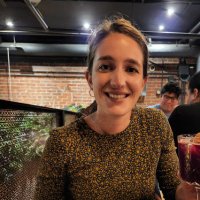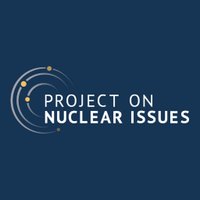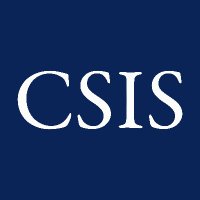
Diya Ashtakala
@diyaashtakala
@csisponi, @BUPardeeSchool alum | Views are my own
ID: 1141614999812505600
20-06-2019 07:53:20
152 Tweet
92 Takipçi
149 Takip Edilen


.Diya Ashtakala is a research associate CSIS Project on Nuclear Issues. Her capstone examines nuclear signaling in the India-Pakistan and China-India dyads and proposes risk reduction measures. Diya presented early findings from her research at a CSIS workshop in March 2025. #FuturesFellowFeatures


Read a #NEW analysis in The Diplomat from PONI staff Catherine Murphy and Lachlan MacKenzie on the potential impact of Russian technological assistance on North Korea’s nuclear program ⬇️

Curious about nuclear weapons in South Asia? Revisit this analysis by PONI Research Associate Diya Ashtakala nuclearnetwork.csis.org/u-s-sanctions-…



"Nuclear risks are on the rise, and crises involving nuclear-armed actors seem to be increasing in frequency, with the potential to become a defining feature of future regional conflicts," write CSIS Project on Nuclear Issues experts. More on the need for nuclear off-ramps: csis.org/analysis/we-ne…

#NEW CQ out now from Diya Ashtakala "India and Pakistan’s recent crisis highlights how rapidly tensions can escalate to a dangerous level, marking a new era of conflict between the two nuclear-armed neighbors." Read more: csis.org/analysis/what-…

“The recent ceasefire and subsequent talks provide India and Pakistan the opportunity to strengthen confidence-building measures and develop off-ramps," writes CSIS Project on Nuclear Issues’s Diya Ashtakala. Read more: csis.org/analysis/what-…

JUST IN: Trump's comments on denuclearization offer an important opportunity to engage in dialogues over disarmament. The U.S., Russia, and China should seize it, argue Joseph Rodgers and Diya Ashtakala of CSIS Project on Nuclear Issues. thebulletin.org/2025/06/only-i… #nuclearweapons #disarmament #Trump

#NEW in Bulletin of the Atomic Scientists Joseph Rodgers and Diya Ashtakala write that the "dissonance between rhetoric and reality highlights the enduring tension between the aspiration for a world free of nuclear weapons and the persistent challenges that stand in its way." thebulletin.org/2025/06/only-i…

#NEW CQ from Lachlan MacKenzie and Masao Dahlgren: “Suppressing enemy air forces no longer assures that skies will be safe; there is now an “air littoral”—a domain of lower-altitude, lower-end drone threats—that must be secured.” Read their full analysis: csis.org/analysis/ukrai…

Nuclear Future Fellow Diya Ashtakala & her colleague Joseph Rogers address the need for irreversible changes in nuclear disarmament to advance a world without nuclear weapons. Read more in the Bulletin of the Atomic Scientists ⬇️ thebulletin.org/2025/06/only-i…

"The future of Iran’s program and regional proliferation risks will depend on the success of Israel’s campaign, the international response, and Tehran’s perceived need for nuclear weapons." Read a #NEW CQ from Heather Williams, Doreen Horschig, and Bailey csis.org/analysis/what-…


🚨 New article in Bulletin of the Atomic Scientists Sept magazine: What can we learn from Cold War arms control breakthroughs? I draw on new interviews with fmr senior U.S. officials who helped negotiate INF, START I & II, & PNIs. tandfonline.com/doi/full/10.10… CSIS CSIS Project on Nuclear Issues CSIS Defense and Security Department MIT SSP

In a new PONI analysis, Doreen Horschig, Diya Ashtakala, and Bailey analyze the growing Pakistan–Saudi defense partnership and its implications for regional security and alliance dynamics. Read it here: csis.org/programs/proje…



To unpack this even more, I address some critical questions about Trump's statements: are Russia and China testing nuclear weapons? Who would benefit from a return to testing? Why make the announcement now? Available here: csis.org/analysis/can-u… CSIS Project on Nuclear Issues CSIS CSIS Defense and Security Department